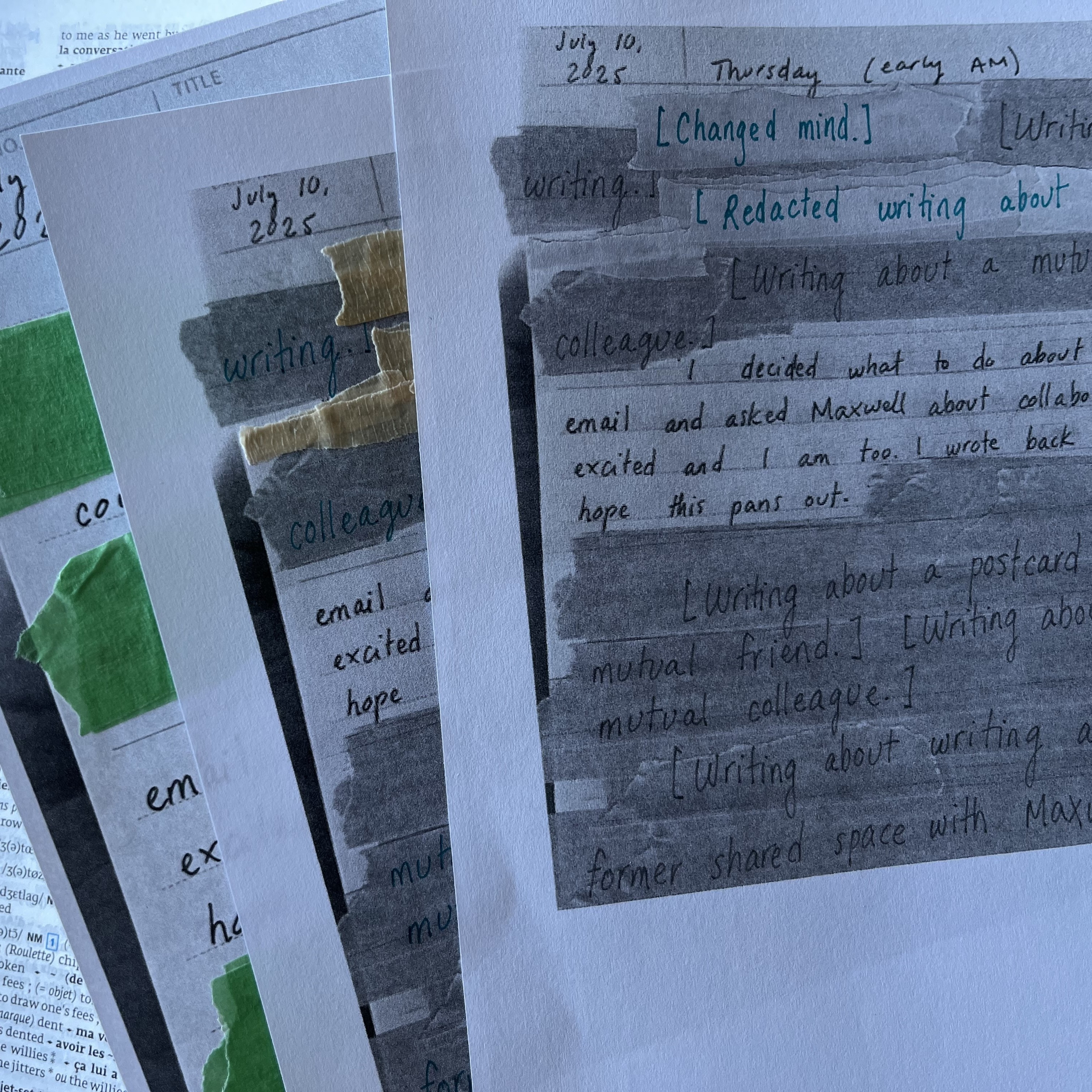
The works of Roland Barthes and Michel Deguy are each marked by the inclusion of friends and lovers, expressing a shared resistance to the norms of impersonal, impartial critique and scholarship. Following Barthes and Deguy’s affectionate position, this article troubles the limits of scholarly citational practices by identifying latent collaboration in the sources and language shared among friends. The incomplete record of Barthes and Deguy’s friendship is complemented by a brief sketch of their pursuits of nuanced, indecisive writing, especially evident in the handling of pre-texts like lecture notes and conference talks. The ongoing exchange between this article’s co-authors—preceding and including this collaboration, and, similar to that between the two French thinkers, written and spoken in various forms and proximities—explains and performs the generative nature of Barthes and Deguy’s joint commitment to difference, as shared expertise and political alignment are bracketed in favor of social postures and the possibility of playful connection. A reading of Barthes’s late attraction to the haiku and Deguy’s commentary on this development puts forth poetic or fictive language that is distinct from the arguments and language systems of philosophy, a significant matter as they each pursue nuance in mourning. Taking these systems to be presently and perhaps necessarily incomplete, the co-authors gesture to a collaborative practice that is drifting and active, privileging the social over ‘loyalty to the idea’ as the basis of creativity and community.
Grant K; Hyett M (2025) Collaborative nuance: Citation, difference, and the friendship of Roland Barthes and Michel Deguy. The February Journal, 05: 82–95. DOI: https://doi.org/10.60633/tfj.i05.117

This work is licensed under a Creative Commons Attribution 4.0 International License.
Copyright (c) 2025 Katie Grant, Maxwell Hyett